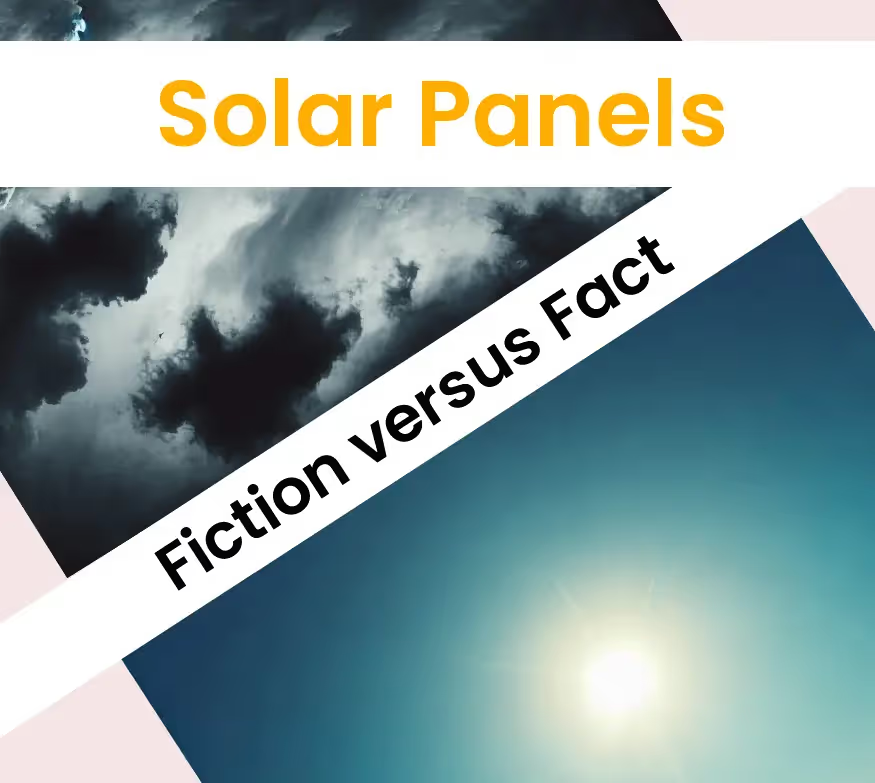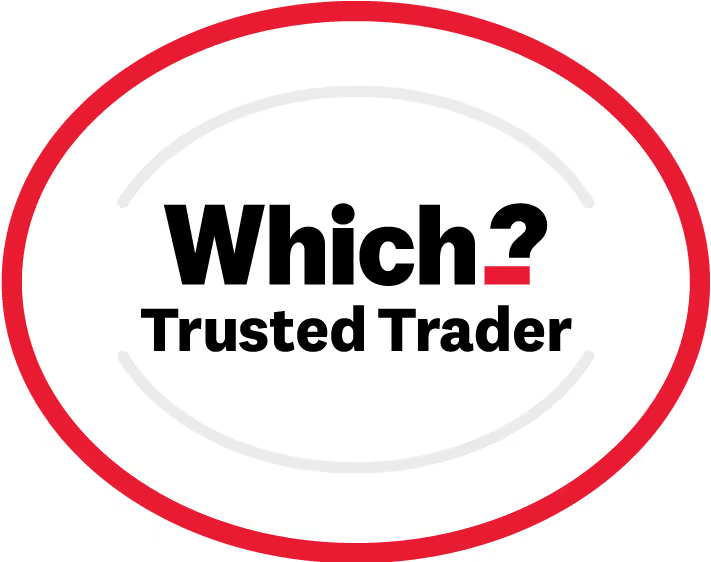When it comes to renewable energy, there are many myths and misconceptions out there. Solar power is no different. These misunderstandings can deter homeowners from embracing this clean and sustainable energy source. It's high time we set the record straight. Here are some of the most common solar energy myths debunked—don't believe everything you read.
Myth 1: Solar Panels Don't Work in Cloudy or Cold Climates
Reality: Solar panels are reliant on sunlight, not heat, to generate electricity. Even on overcast days, solar panels can produce significant amounts of electricity. In fact, cold temperatures can enhance the efficiency of solar panels, as excessive heat can reduce their performance. Integrated panels (that sit flush in the roof of new builds) are up to 10% less efficient because air can’t circulate behind the panels and cool them down—they don’t like excessive heat.
Myth 2: Solar Panels Are Too Expensive
Reality: While the initial investment for solar panels can be substantial, the long-term savings are significant. Advances in technology and increased demand have dramatically reduced the cost of solar installations. In addition, government incentives, tax credits, and financing options are making solar energy more accessible than ever before. Over time, solar panels should eventually pay for themselves, usually in less than 13 years (according to Energy Saving Trust), but much faster in the right conditions, from installation and then offer a free source of electricity thereafter. We’ve written a detailed guide to solar panel installation costs here.
Myth 3: Solar Panels Require Constant Maintenance
Reality: Solar panels are designed to be low maintenance. Regular cleaning to remove dust and debris can optimize performance, but rain often takes care of this naturally. Most solar panels come with warranties ranging from 20 to 25 years, and they can last even longer with minimal upkeep.
Myth 4: Solar Energy Isn't Reliable
Reality: Some people believe that because the sun isn't always shining, solar energy can't be a dependable source of energy for a home. With the addition of solar batteries, you can store excess energy for use during nighttime or cloudy days, enhancing the reliability. During the summer periods, when excess energy is produced, you can sell it back to the grid. With the right tariff, this can be very profitable.
Myth 5: Solar Panels Will Damage My Roof
Reality: When installed correctly by professionals, solar panels may actually protect your roof. They shield it from the elements like rain, snow, and UV rays, potentially extending the life of your roofing materials. Installers use specialized mounting systems that prevent leaks and distribute the weight of the panels evenly across the roof structure. If done correctly, it won’t damage the roof at all. At dwellow, we specialise in solar installations—get a quote for solar installation.
Myth 6: The Solar Panel and Battery Manufacturing Processes Aren't Environmentally Friendly, So Neither Is Solar
Reality: While it's true that manufacturing solar panels requires energy and resources, the environmental impact is minimal compared to the ongoing use of fossil fuels. Solar panels generate clean, renewable energy for decades, offsetting the initial carbon footprint of their production. The energy payback time—the period needed to generate the amount of energy used to produce them—is typically between one to two years.
Myth 7: Solar Panels Lower Property Values
Reality: Contrary to this belief, solar panels can actually increase property values. Homes equipped with solar energy systems often sell faster and at higher prices than comparable homes without the panels. See this research piece by WWF and Scottish Power, analyzing the sale prices of homes across the UK, with and without renewable installations. Buyers recognize the significant savings on their energy bills and the environmental benefits, making solar-equipped properties more attractive to house hunters.
Myth 8: Only Homeowners Can Benefit from Solar Panels
Reality: Tenants can also take advantage of solar energy through lower bills, and in a block of flats, they can save where there are community solar programs. These allow multiple people to benefit from a single solar array installed in a shared location. Participants receive credits on their electricity bills for their share of the power produced, making solar energy accessible to a wider audience. A tenant will often take on responsibility for the bills, and a property with solar will be more attractive for this reason. As a landlord who pays the bills for their property, a solar installation will clearly benefit them directly.
Myth 9: Solar Panels Aren't Aesthetically Pleasing
Reality: Modern solar panels are sleek and in full black, so they can blend seamlessly with your roofline. The blue-tinged panels with metallic grid lines are being phased out, with full black options far more popular and aesthetically pleasing. There are even solar shingles and building-integrated photovoltaics (BIPV) designed to mimic traditional roofing materials. There are also options for solar fences or mounting panels on the ground if you don’t want to or can’t use the roof of the home. With various design options available, aesthetics need not be a barrier to adopting solar power.
Myth 10: Solar Energy Alone Can't Meet Our Energy Needs
Reality: While it is true that solar panels alone may not cover your full electricity requirement on their own, due to the fact that energy needs to be used as it is produced and not necessarily as and when you need it, you can add batteries to help ensure you are wasting as little of the energy as possible. Battery storage can stockpile the energy to be used at times when the sun is no longer shining. Alternatively, or as well as, you can sell excess solar generation back to the grid. Check out our article on solar battery storage and charging from the grid.
Conclusion
Don't let myths and misconceptions keep you from considering solar energy. By debunking these common lies, it's clear that solar power is a reliable, cost-effective, and environmentally friendly energy solution. Whether you're a homeowner or a tenant, solar can offer a significant benefit to your wallet. If you move the heating of your home to electricity with a heat pump, then the solar can help power the central heating as well, further reducing your bills. Get a quote for a heat pump from dwellow. Why not book a call with one of our experts and discuss all things solar?



